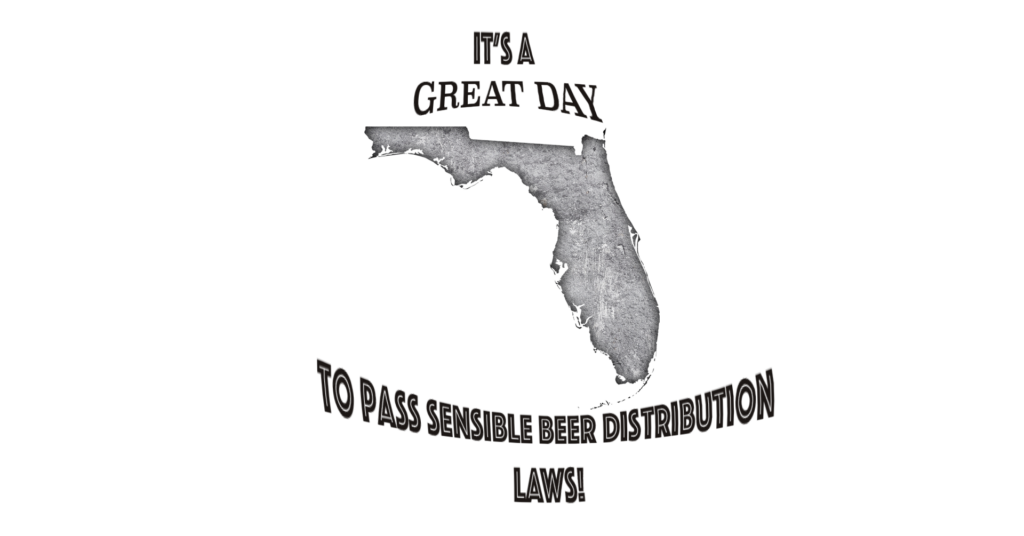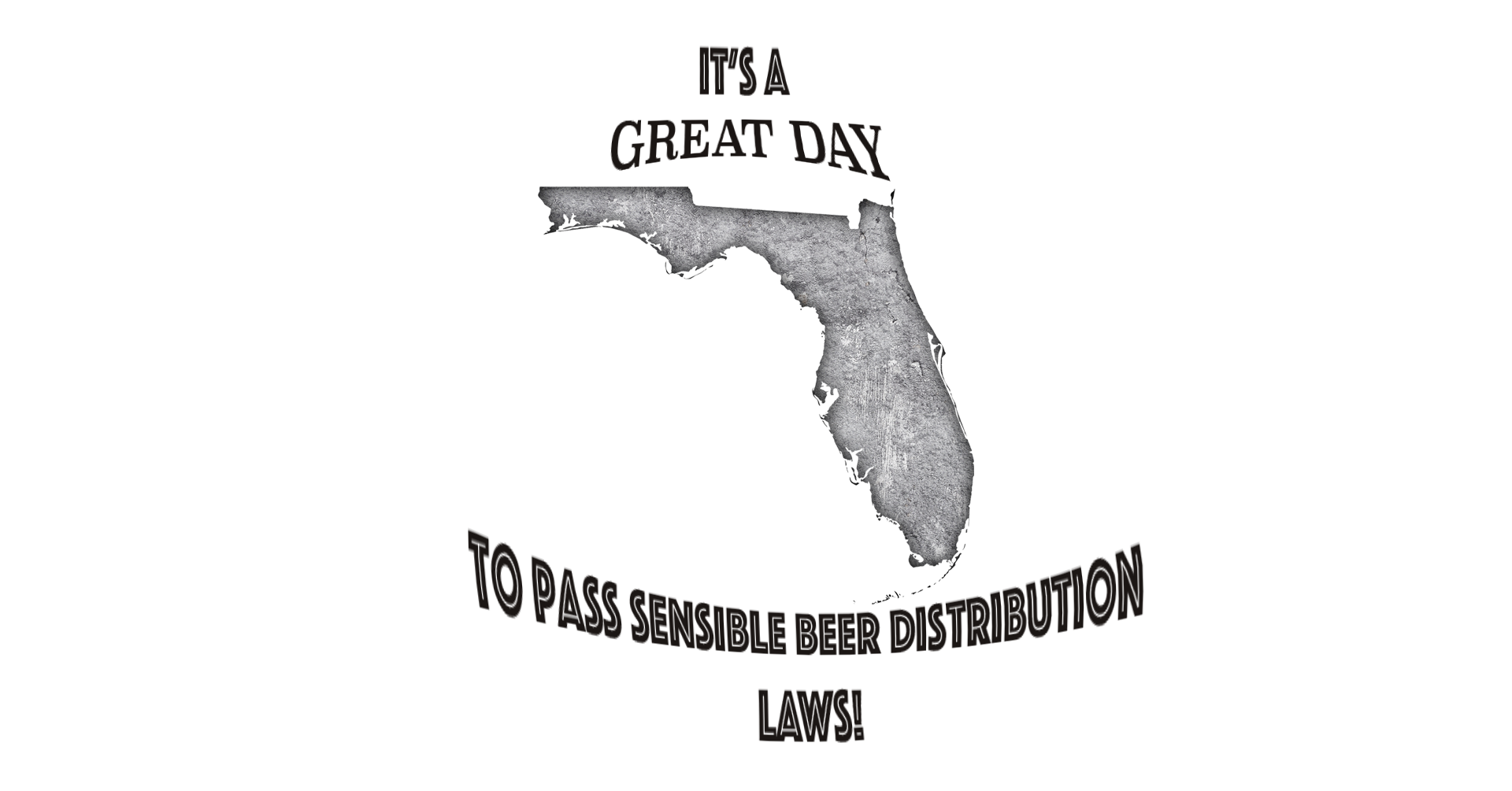The debate may take place in the legislature, but in the marketplace, there is no tenable reason why Florida craft brewers cannot distribute their own products. While the opposition (mainly one or two beer distributors that also distribute products that rhyme with “Dudweiser”) continues to come up with any rhetoric against this idea, the facts remain cannot be refuted.

- Right now a brewery without distribution cannot sell to the bar, restaurant, convenience store, grocery, deli, or bodega next door to them.
By Florida law, the brewery needs a distributor to make the sales and deliver the beer for them. Florida is a mandatory three-tier distribution state. This is not inherently a bad thing, except that distributors are increasingly overwhelmed with new products (have you tried NA White Claw?), and craft brewers are increasingly losing space in distributor warehouses and on their trucks because they cannot partner with distributors the same way that multi-million dollar operations like Molson Coors and Anheuser-Busch InBev can. With self-distribution, this issue goes away, and the brewery can sell beer to their neighbor without a middleman. - Distributors invest a lot of their own, independent money on building beer brands in their market, and small breweries cannot afford to spend on marketing the way larger brewers do.
True, but if small breweries were allowed to build their own brands by self-distributing, then when they are ready to sign a contract with a larger distributor, the brand will have value and a pre-existing customer list that was built by self-distribution. Showing up to a distributor meeting with a list of customers who already purchase beer is much more valuable than showing up with a list of customers who SAY they will buy a brewery’s beer. - But self-distribution will lead to more beer available in the market.
And? Any brand that is sold at a retail store does not get there by chance. Each store is a private business and has the opportunity to sell or NOT to sell any brand they wish. If the people want to buy a certain beer, LET THEM. If they don’t, then no retailer is going to let a product that doesn’t sell sit on his or her shelf. - Self-distribution will lead to competition with distributors and will hurt their business.
No. Anyone who has worked in beer distribution knows it is challenging, fast-paced, and labor-intensive. As the saying goes, “Everyone wants to distribute beer until it’s time to work a grocery store at 4am.” No brewery wants to run trucks and merchandise a retail store if they don’t have to. What a brewer wants to do is build awareness, which they are currently limited in how they do it. Allowing small brewers to distribute their own product will allow them to compete in a marketplace and learn about the greater beer business, so when they choose to sign with a distributor, it is because they need to grow not because they need not to die. - Self-distribution will allow minors more access to beer.
This is the most ludicrous argument, but I have heard it. Self-distribution for breweries will not impact how beer is sold, simply the variety of beer sold. As long as the laws in place are enforced, then a brewery selling beer directly to a retailer will not impact the consumption of beer by minors. Consider this with everything else – most minors cannot generally afford craft beer since it is usually priced higher than its non-craft beer competitors.
So, where do all of these arguments lead? They all lead to the same conclusion – it is past time to pass sensible beer distribution laws in the State of Florida.
Please urge your state senator and representatives to vote in favor of HB 499 and SB 1818 so Florida’s craft breweries that produce less than 1,000 barrels a year can self-distribute their beer.
Find your representative here.
Please help Florida’s craft breweries pass this important legislation for their future.


